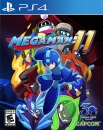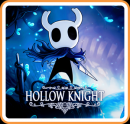pokoko said:
Hyper-simplistic writing is sweeping the industry. Writing without depth, where the story, the plot, and even the dialogue are a shallow facade stretched over the bones of the game. The modern approach seems to be that nothing really matters in the game-world. There is no serious attempt at continuity or consequence. When it comes to conversation, they toss aside actual human speech and instead pound the point home with the verbal equivalent of a giant squeaky hammer. The story can be extremely convoluted but it doesn't have to make any sense. Plot holes are ignored, plot points are dropped, and the direction is fixed to one outcome even if they obscure it with the illusion of choice. Why, though? Why is this the trend? Emil Pagliarulo, the lead writer for Bethesda, said: "We're going to write the great American novel. It's gonna be this thick, and on every page will be written comedy and tragedy and it will be wonderful, it'll be amazing. And you're gonna give this book, this great American novel, to the player and what are they gonna do with it? They are gonna rip out every page and make paper airplanes out of them. And they are gonna throw them around. And they are never gonna see your story. Because, the story is there but they are going to spend 30 hours making shacks. They're going to spend 20 hours looking for bobbleheads. But that's okay, we know that going in. That's the jagged pill that we swallow when we do this." I think it's clear that this philosophy has pervaded the industry. (This is NOT a post about Emil Pagliarulo, btw) Is it correct, though? Probably, to a degree. A lot of people likely just see the wordy bits as rest areas between game-play. Does that mean that writing should then be aimed at the lowest common denominator?  Because it looks like that is what BioWare is doing in order to be accessible to as many people as possible. They have points that they want to emphasize but they aren't subtle about the way they do it and they don't really care about how they get there or how they move to the next point down the line. And, to be real, I'm sure that it's a way easier, cheaper, and allows the developers to be much more flexible during development. Is this the future of gaming? | 


























































